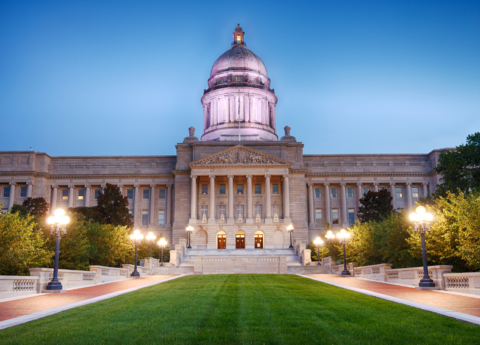Kentucky loses more than $13 billion every year through tax expenditures – tax breaks, exemptions and exclusions that leave us with less money for investments in schools, infrastructure and other building blocks of our communities – and bringing them under scrutiny is an essential first step toward a tax and budget system that reflects our priorities. Recent recommendations from a legislative task force to bring more accountability to this side of our budget should be enacted by the legislature.
Earlier this year, the President of the Senate and Speaker of the House created the Task Force on Tax Expenditures to review, examine and analyze state tax expenditures. After hearing testimony at meetings throughout the summer from government agencies charged with administering and monitoring tax expenditures and from other stakeholders, on December 13, 2018, the task force heard, but did not formally submit, its final report.
The report’s recommendations address two specific weaknesses in the current system – the lack of good data to use in evaluating tax expenditures, and the lack of a coherent, regular process for doing so. With regard to the process, the task force recommends the following:
- Sunset all existing tax expenditures except the top 10 by dollar value. The report doesn’t include a rationale for exempting the top 10 expenditures – and scrutiny should be applied regardless of size – but testimony reveals that some help reduce the regressive nature of our tax code and that may be why they were excluded;
- Enact a five-year sunset for all new tax expenditures; and
- Establish a Tax Expenditure Oversight Board to review expiring tax expenditures.
So that the Tax Expenditure Oversight Board can effectively review and evaluate tax expenditures, the task force recommended the following with regard to reporting and data collection:
- Legislation establishing tax expenditures should include a purpose statement and reporting requirements;
- The oversight board should have statutory authority to request and receive sufficient data from executive branch agencies to effectively evaluate tax expenditures;
- Additional information should be required in the state’s biennial tax expenditure report, including a data dictionary explaining the source of data used to produce each estimate, a confidence index for each estimate, and an aggregation of expenditures across taxes when the expenditure is available under more than one tax;
- A fiscal note should be required for each tax expenditure, rather than relying on the current system under which a fiscal note is produced only upon request;
- The Department of Revenue should be required to collect data on more tax expenditures, and it should be required to do so using a unified system that allows comparison of information among different taxes, rather than using the current multiple systems and piecemeal approach; and
- Each enacted budget bill should include a summary reference to the tax expenditure analysis to shed light on what total revenue for investments would be without tax expenditures.
Passage of these recommendations would be a very strong first step toward more transparency and accountability within our tax system. They would enable legislators to make more informed choices about how we use resources, and allow the public to better hold the General Assembly accountable. Ignoring these recommendations, however, allows us to continue spending more on tax breaks than we invest in our commonwealth.



